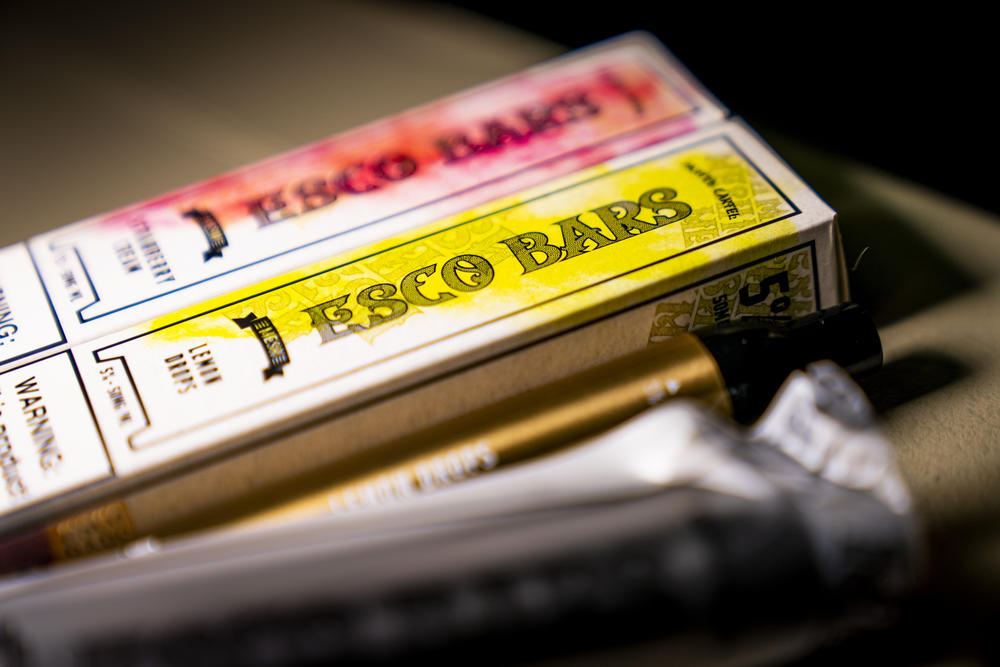
Caption
Esco Bar disposable vaping pen devices are displayed, Monday, June 26, 2023, in Washington. The number of electronic cigarette devices sold in the U.S. has nearly tripled since 2020, driven almost entirely by a wave of unauthorized disposable vapes from China, according to sales data obtained by The Associated Press. Recently U.S. health regulators have begun trying to block imports of several of the biggest brands, including Elf Bar and Esco Bar.
Credit: AP Photo/Andrew Harnik

